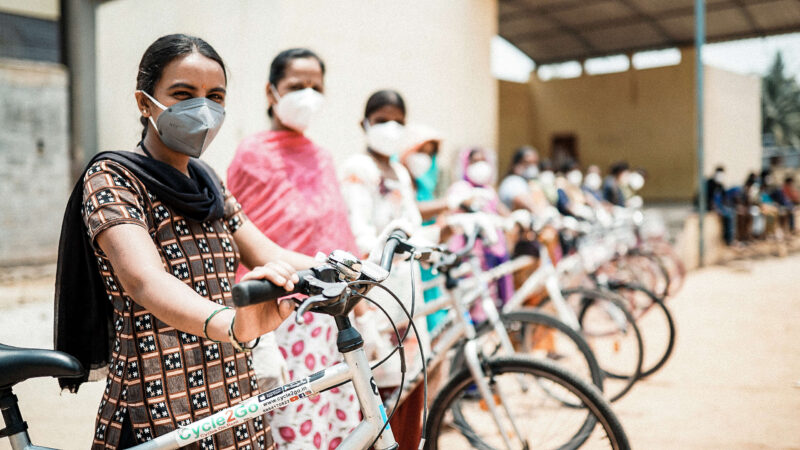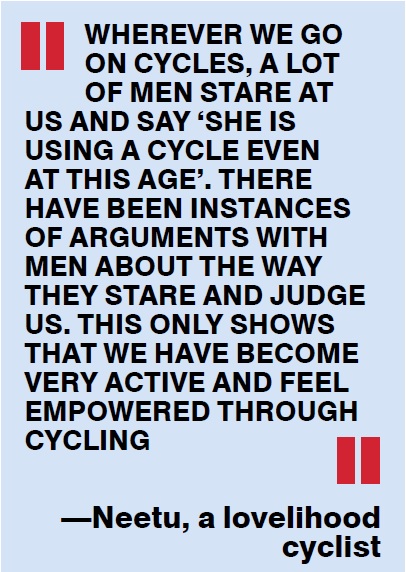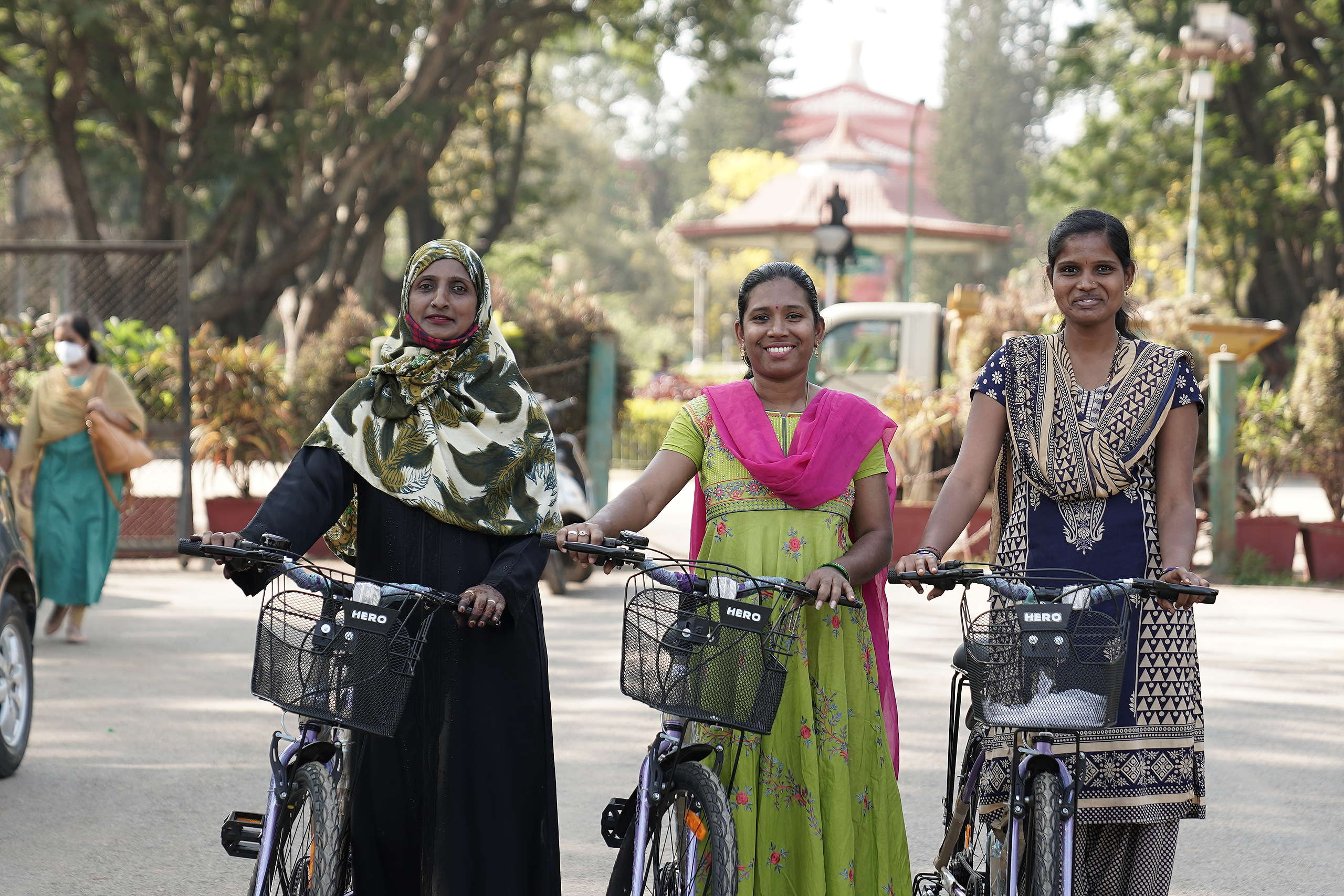When Kusum Lata, 37, decided to use a cycle to commute to her workplace, she faced many personal challenges.
On the top was her husband’s disapproval.
However, when she received a cycle as a part of Power The Pedal campaign by Greenpeace India, things changed with time. Not only did her husband motivate her to use the cycle for livelihood, she also saved time and money to spend on her family.
“A lot of changes came into my life when I started cycling. There were a lot of difficulties I had to face earlier. Now, I am able to save money and time and am also independent,” says Lata, who works in a nearby factory that manufactures sanitary napkins and lives in Neb Sarai in south Delhi.
Nearly 300 working class women like Lata have been empowered by the campaign that promotes cycling as a solution to numerous urban challenges, ranging from mobility-related problems like traffic congestion, pollution, and carbon emissions.
“If we look at sustainable mobility in India, it is very gendered. Accessibility to women to different forms of mobility is extremely lower than men. If we talk about livelihood cyclists, there are only 5% women cyclists in India as per the 2011 census. To address this issue, we decided to build a community of women cyclists who come from low-wage income brackets and marginalised backgrounds,” says Avinash Chanchal, Campaign Manager at Greenpeace India.
The campaign, according to Chanchal, aims to build a better city which can support a cycle-friendly infrastructure – especially for women.
“There is a significant number of cyclists in Delhi. But if you see, they are mostly invisible on roads. Nobody even notices them on roads, which results in biases in policy-making around the city… However, after this campaign, they [working-class women associated with the campaign] have started demanding cycle-friendly infrastructure,” he said.
To address the issues of mobility inequality, gender gap in urban spaces, and difficulties that livelihood cyclists face on city’s roads, these women cyclists have voiced their demands to various authorities, including the Central Pollution Control Board of India regarding air pollution and local municipal councillors for safe and accessible road space for women cyclists.
As the community is growing, with many others acknowledging the benefits of cycling, they also performed a street-play around the patriarchal nature of society and how cycling empowers them.
“One of the most important things that the community has been able to do is wield some influence and the authorities are ready to listen. This is a significant feat for working-class women. It was only possible by the constant training and interaction between volunteers and women,” says Abhishek Chanchal, Public Engagement Campaigner for Greenpeace India.
Neetu, 41, who is a part of the campaign from the last two years, speaks about the many challenges that women face while cycling.
“Wherever we go on cycles, a lot of men stare at us and say ‘she is using a cycle even at this age’. There have been instances of arguments with men about the way they stare and judge these women. This only shows that the women have become very active and feel empowered through this,” she says.
According to the Centre for Science and Environment, cars and two-wheelers use up more than 75% of the road space, but meet only 20% of the city’s commuting needs. This leaves little space for cyclists and there is a constant threat of road accidents. This not only leads to traffic jams, but also threatens the cyclists on the roads largely populated by motor vehicles.
Abhishek emphasises that the campaign is not just limited to cyclists, but also sends a message to car owners and those who leave bigger carbon footprints.
“It is true that these women are using cycles for their livelihood. But the larger challenges are not ending,” he says.
This can only happen, he says, when the authorities take into account the many challenges working-class women face, including being one of the most vulnerable to pollution.
Speaking about the safety issues faced on the city’s roads, women told Patriot that they are in constant fear of their safety, have to stop sometimes when a large motor vehicle passes, and often avoid taking busy roads.

Neetu says that although they have overcome the societal challenges through their spirit, the infrastructural challenges continue.
“In the beginning, we did not even know how to ride a cycle. We learnt it and challenged societal perception because we wanted to contribute to the finances of our families and live independently,” she says.

However, she goes on to say, that demand for equal urban spaces continues.
“There have been instances of minor accidents where cycles have been damaged. All of this was because of lack of cycle-friendly roads,” she says.
Kusum also speaks on similar lines and adds that there is always a lack of ‘dignity’ whenever people ride cycles.
“A lot of people think that cycling is just something that poor people should do. This has to change in order to change the perception of the society towards cyclists on roads. Cycle has to be considered an important part in life as it helps in many environmental and health problems,” she says.
Women, by and large, have benefited from the campaign and feel extremely proud to be able to help their families and other women in the community.





